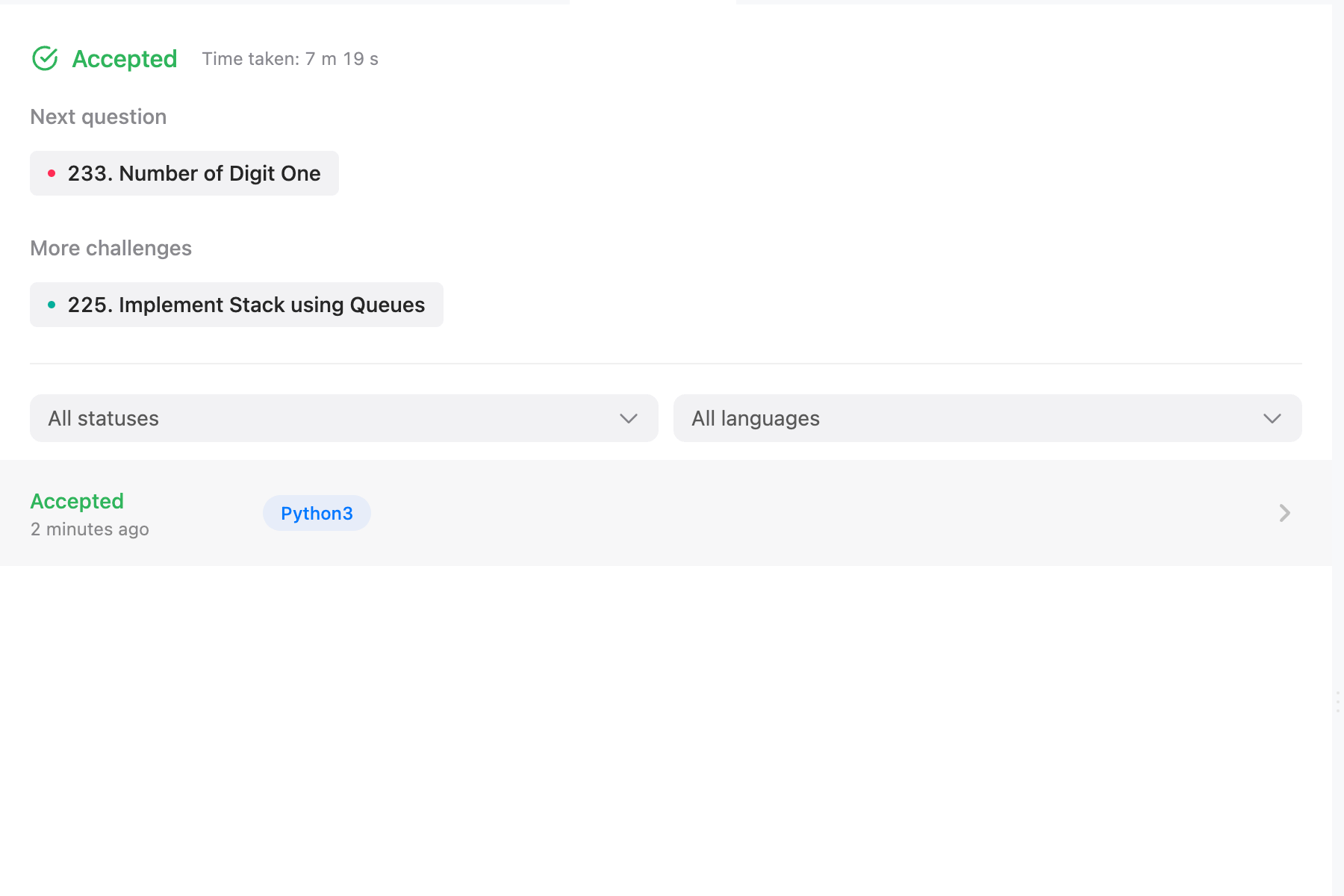Links to This Note2
0232 Implement Queue using Stacks
Solved at: 2022-11-28
Question
Implement a first in, first out (FIFO) queue using only two stacks. The implemented queue should support a regular queue's functions (push, peek, pop, and empty).
- Implement the
MyQueueclass:void push(int x)Pushes element x to the back of the queue.int pop()Removes the element from the front of the queue and returns it.int peek()Returns the element at the front of the queue.boolean empty()Returnstrueif the queue is empty,falseotherwise.
- You must use only standard operations of a stack, which means only
push to top,peek/pop from top,size, andis emptyoperations are valid. - Depending on your language, the stack may not be supported natively. Using only a stack's standard operations, you may simulate a stack using a list or deque (double-ended queue).
Solution
class MyQueue:
front = []
back = []
def __init__(self):
self.front = []
self.back = []
def push(self, x: int) -> None:
self.back.append(x) # push to top
def pop(self) -> int:
if not self.front:
while self.back:
self.front.append(self.back.pop())
return self.front.pop()
def peek(self) -> int:
if not self.front:
while self.back:
self.front.append(self.back.pop())
return self.front[-1]
def empty(self) -> bool:
return not self.front and not self.back
Results
- Runtime: 46 ms, Beats 72.73%
- Memory, 14 MB Beats 76.5%
Accepted on the first try? Let's go!

Complexity Analysis
- Push - per operation,
- Pop - Amortized per operation.
- Space:
Depending on the policy of moving elements in the queue, either moving ahead of time or just in time, the time complexity can vary from to .